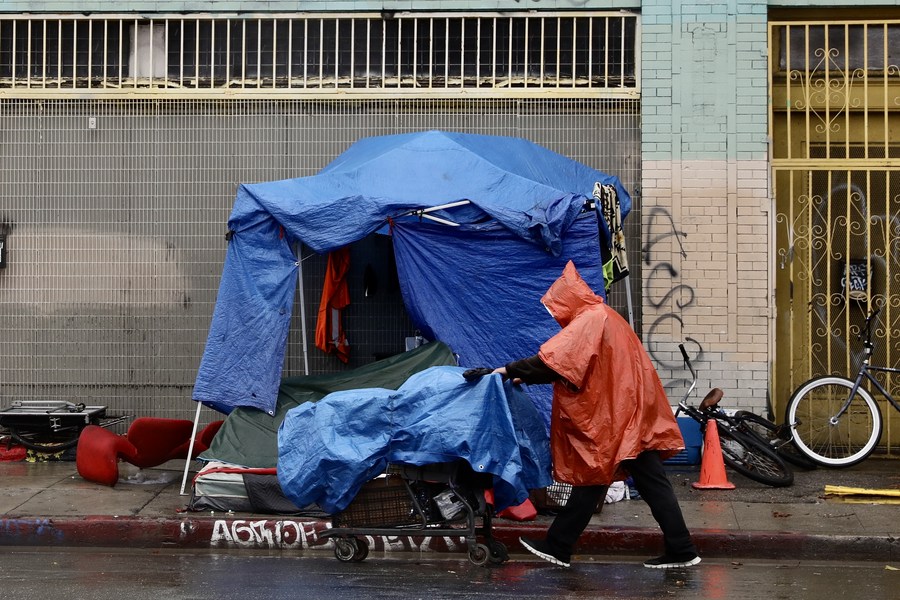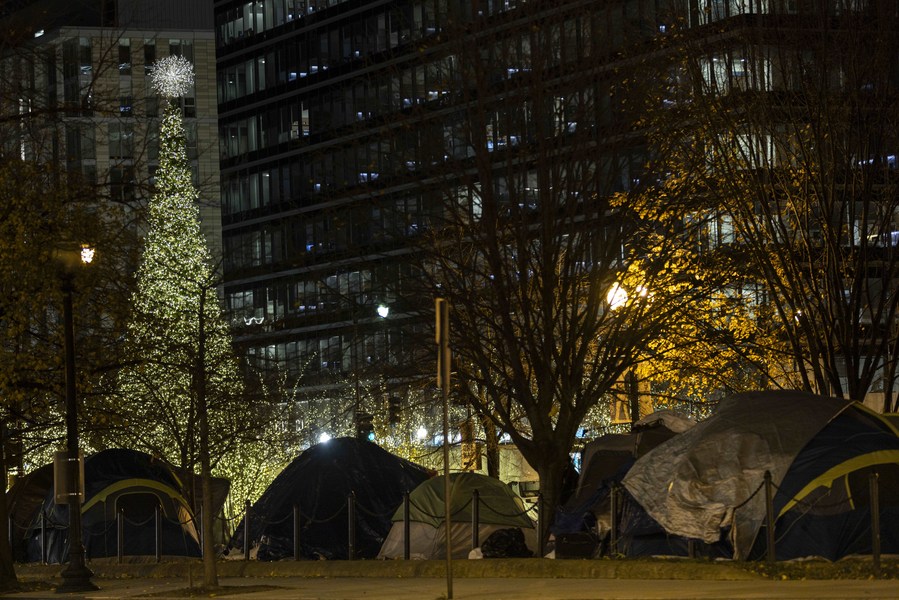U.S. sociologist: Government policy helps the rich, hurts the poor

A homeless person walks in the rain along the 6th Street in downtown Los Angeles, California, the United States, Jan. 10, 2023. (Xinhua)
Affluent Americans, including many with progressive political views, benefit from corporate and government policies that keep people poor, says Matthew Desmond.
NEW YORK, March 22 (Xinhua) -- Over 11 percent of the U.S. population, about one in nine people, lived below the federal poverty line in 2021, but Princeton sociologist Matthew Desmond said neither that statistic, nor the federal poverty line itself, encapsulate the full picture of economic insecurity in America, reported National Public Radio (NPR) on Tuesday.
"There's plenty of poverty above the poverty line as a lived experience," Desmond said. "About one in three Americans live in a household that's making 55,000 U.S. dollars or less, and many of those folks aren't officially considered poor. But what else do you call trying to raise three kids in Portland on 55,000 dollars?"
Growing up in a small town in Arizona, Desmond learned firsthand how economic insecurity could impact a family's stress level. He remembers the gas being shut off and his family home being foreclosed on. Those hardships would later drive his research -- specifically the question of how so much poverty could exist within a country as wealthy as the United States, according to the report.

Tents of the homeless are seen in Washington, D.C., the United States, Dec. 8, 2021. (Xinhua)
Desmond's 2017 book Evicted, for which he won the Pulitzer Prize, examined the nation's affordable housing crisis through the lens of those losing their homes. His new book, Poverty, by America, studies various factors that contribute to economic inequality in the country, including housing segregation, predatory lending, the decline of unions and tax policies that favor the wealthy.
Affluent Americans, including many with progressive political views, benefit from corporate and government policies that keep people poor, Desmond was quoted as saying.
"Most government aid goes to families that need it the least," Desmond said. "If you add up the amount that the government is dedicating to tax breaks -- mortgage interest deduction, wealth transfer tax breaks, tax breaks we get on our retirement accounts, our health insurance, our college savings accounts -- you learn that we are doing so much more to subsidize affluence than to alleviate poverty."
"My hope, too, is in the fact that ending poverty in America is better for all of us," he noted. "It is clearly better for folks that are facing homelessness and hunger and humiliation. But it's also better for those of us who have found security that are diminished and depressed by all this poverty in our midst. So I do think there's quite a lot to be hopeful about."
Photos
Related Stories
Copyright © 2023 People's Daily Online. All Rights Reserved.









